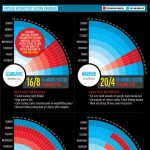

Calorie Secrets ads help keep the site free. Learn moreThe intermittent fasting or 5:2 diet is one of the latest crazes to be adopted by dieters around the world in a bid to lose weight. This fairly simple plan suggests that you eat normally for five days of the week, but follow a fasting type diet on the other two days.Advocates for the diet suggest that not only can it be a successful way to drop the pounds; it can also increase life-span, protect against cognitive diseases such as Alzheimer’s and also offer protection against other lifestyle diseases.But is this the miracle diet we have all been waiting for, or just another fad with no evidence to support it?What does the diet involve?The diet relies on fairly simple concept; you simply eat what you normally do for five days of the week and then limit your intake for two days.The diet recommends that on fasting days intake should be around 500 calories for women and 600 for men.As an example, this could consist of a slice of ham and two eggs for breakfast, grilled fish and vegetables for your evening meal and nothing else except low calorie fluids such as water, black coffee and green tea.The evidenceThe evidence that this type of diet can give benefits in prevention of disease and increased life span is not strong and most studies have been carried out in animal models.Although some promising results have been seen in mice, there is no evidence that this will transfer to human beings as yet. The area of intermittent fasting does not have many studies behind it, so it is fair to say at the moment it is unclear what effects such as diet might have and what factors may increase and decrease the effectiveness of such a diet.One study carried out in 2012 in women at risk of heart disease saw good results when using a alternate day fasting pattern in terms of weight loss, however, this study alternated a low calorie diet for six days per week with only one fasting day per week, which is a much stricter plan than the 5:2 diet.There was also increased motivation for these women to lose weight, since that had been told that their risk of heart disease would decrease with weight loss.The advantagesIt is not too restrictiveUnlike other diets which dictate and limit what you eat every day of the week, the 5:2 diet has the benefit of allowing free rein over your intake for the majority of time. This may make it easier to adhere to than other more restrictive diets that involve more fasting days or elimination of food groups.There is potential to get all the nutrients you needIf you eat a healthy balanced diet on non-fasting days, there is plenty of opportunity to get all the nutrients you need.Even on fasting days, if nutritious low calorie foods are chosen, a 600 calorie intake does give the opportunity for some nutrition, unlike traditional fasts where all intake may be prohibited.It may assist with weight lossIf you follow a healthy diet, balanced diet that is not too high in calories on non-fasting days, the calorie deficit induced due to fasting may help to kick start the weight loss process.To lose weight calories consumed must be less than calories burnt, so by reducing calorie intake over the week there is a good chance you will lose weight.The disadvantagesThere is no clear evidence supporting the use of this type of diet for weight loss or disease preventionAs there are very few studies investigating this type of diet in humans, we really do not know what the effects and long term consequences may be.There is also no evidence giving an idea as to how easy it is to maintain the diet in the long term and if there are any specific problems with the diet.Fasting can be detrimental to healthAlthough there is little research into the effects of this more relaxed approach to fasting, very low calorie and fasting diets do have the potential to cause negative side effects such as sleeping difficulties, bad breath, anxiety, tiredness and irritability.It is also possible that fasting may impair your ability to exercise and such a diet is not suitable for pregnant or lactating women, those with a history of eating disorders or diabetics.It may encourage binge eatingAllowing the dieter to eat whatever they want on non-fasting days may make the diet more flexible, but it also gives the opportunity to binge eat. If the non-fasting days are seen as a time when any amount of calories from any type of food can be consumed before the fasting days, followers may end up eating more calories over the course of the week than they did before.It is essential to follow a healthy, balanced diet that provides adequate, but not too many calories most of the time to achieve a good nutritional status and prevent deficiencies as well as to lose weight.It may not have any effect on weightDepending on what you eat on non-fasting days, weight loss may or may not occur. If you eat extra calories on non-fasting days to make up for those you miss on fasting days, you are unlikely to lose weight at all.It can be anti-social Fasting days can be difficult to stick to when social interaction involving eating is necessary. Meals with friends or for work are almost impossible to eat at and still stick to your fasting calories.On a positive note, as the fasting day can be changed, with good organization this can be avoided. However, spontaneous eating arrangements are not really possible on these days.It may not be maintainable in the long termThere is little evidence as to the ease with which this diet is followed in the long term. Although, this may be a good way to kick start weight loss, it may be beneficial to maintain a healthy balanced diet with no fasting in the long term for weight maintenance.Is this diet for you?Under the guidance of a health professional, this may be a useful diet for some people in terms of weight loss. It is essential to discuss this diet with a dietician or doctor to check the diet is suitable for you and to ensure all nutrient requirements are met by a healthy diet on non-fasting days.As with any diet, it is unlikely to be successful for everyone and may not be maintainable in the long term. However, if you are capable of following a healthy diet on the five normal days without overeating and find that fasting can fit into your daily life, it may be good for weight loss.References used in this articleLike this article? Share and subscribe!Pin ItAbout the authorNaomi studied Nutrition and Dietetics and Biotechnology. She is a certified dietician with experience in Type 2 diabetes and menu planning for weight loss
Continue at source:
What is the Intermittent Fasting Diet and does it help with Weight Loss?













 For now classes are 6pm and 640pm at 2840 Wildwood st in the Boise Cloggers studio.
Book your class NOW!
click this ==>
For now classes are 6pm and 640pm at 2840 Wildwood st in the Boise Cloggers studio.
Book your class NOW!
click this ==>








